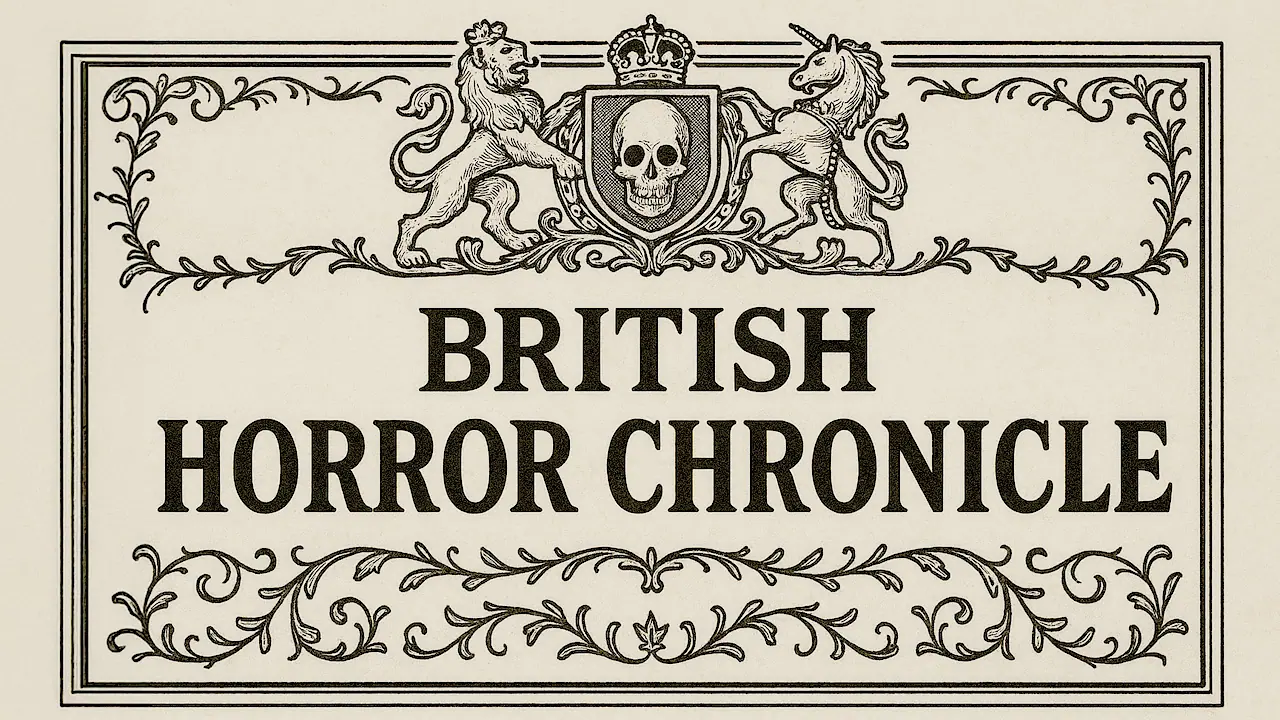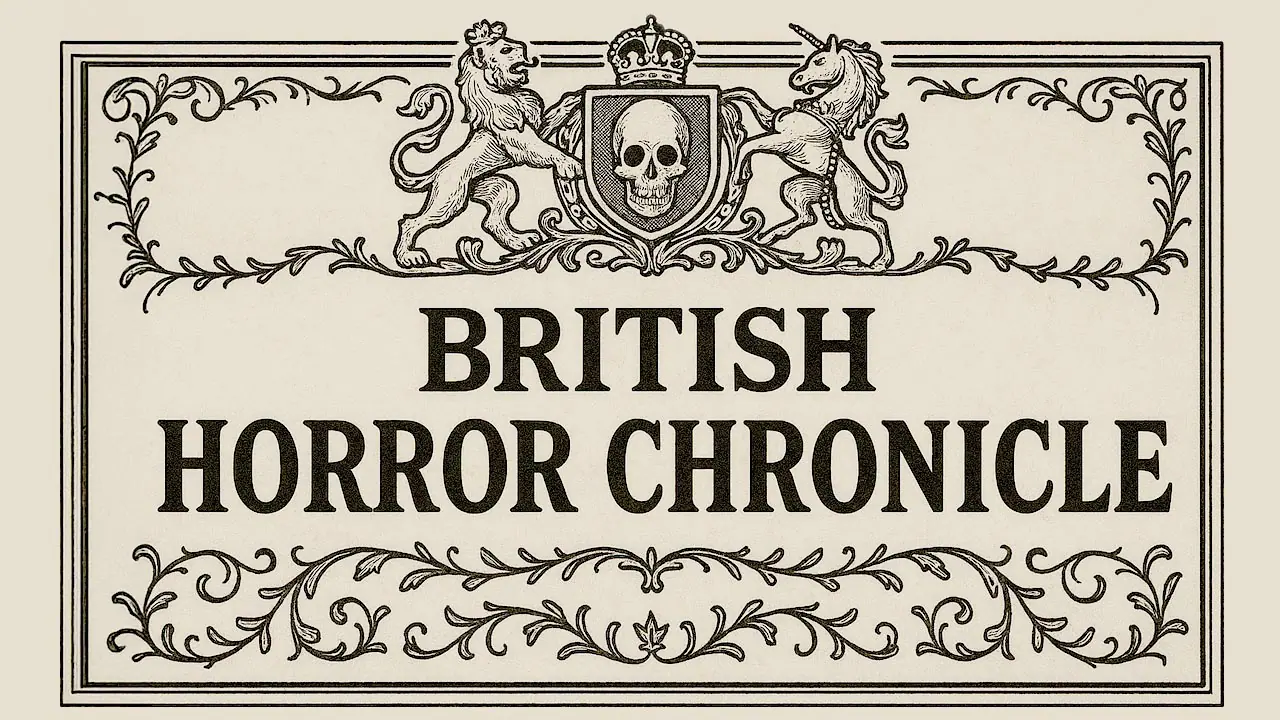The British Horror Chronicle
Established 1946 — In the Service of British Cinematic Letters
When Mr. Lawrie Brewster Reconsidered the Motion Picture Industry
By Our Own Correspondent
Mr. Lawrie Brewster, Founder of Hex Studios and President of Amicus Productions
It is a rare occurrence indeed when a gentleman of the arts pauses mid-career to reappraise the very industry that has long sustained his efforts. Yet such is the case with Mr. Lawrie Brewster, an independent producer of no little renown, whose recent meditations have led him to question the assumptions upon which the British, and indeed global, film industry precariously rests.
In a dispatch both candid and curiously self-effacing, Mr. Brewster reflects upon his youthful beginnings, peppered with what he himself terms “ridiculous photographs”, and charts his trajectory from a rotund schoolboy of Simpsonian proportions to a stalwart, middle-aged impresario, albeit with a similar circumference.
While his waistline may remain consistent, his worldview has undergone a most profound transformation. For Mr. Brewster, the lessons of the last fifteen years, earned not in lecture halls but in the bruising trenches of production, have brought about a decisive shift in strategy.
The Resurgence of the Studio System
In earlier years, Hex Studios operated as a production service entity, often entering into co-productions with international distributors. Amongst its notable efforts, the grandiose and Lovecraftian Reign of Queen Ginnarra, a medieval epic of baroque scale, stood proud as a testament to the firm’s ambition. Other entries, such as Lord of Tears, found their spectral way onto the shelves of American emporia, both physical and digital.
Yet this model, Mr. Brewster contends, no longer serves the independent artist. Thus, the studio has pivoted to a vertically integrated structure, evoking the halcyon days of Hollywood’s golden age, wherein mighty houses such as MGM and Warner Bros. controlled the means of production, distribution and exhibition alike.
Following the Paramount Decree of 1948, such integration was dismantled on the other side of the Atlantic. Here in Britain, no such legal upheaval occurred, though the presence of titans such as Rank rendered further intervention superfluous. Today, however, a digital reformation is underway. Where once stood studios, now loom streaming giants such as Apple, Disney and Amazon, each an empire unto itself with tightly sealed gates.
The Mirage of the Independent Marketplace
According to Mr. Brewster, many filmmakers cling to an outdated notion of the marketplace; a glittering bazaar wherein cinematic wares are traded for gold at Berlin, Cannes and similar foreign exchanges. While rights are indeed still sold – four thousand pounds here for Poland, perhaps seven thousand five hundred there for Japan – these sums are seldom realised by the filmmaker himself.
More often, the intermediaries, styled as “sales agents”, retain control of proceeds and subsidies. It is a practice not dissimilar from certain colonial trading companies of old. A telling sign, says Mr. Brewster, is that many of these agents are now producing films themselves, which suggests a troubling shift in their supposed purpose.
An Unpleasant Reckoning
The consequences of this new order are stark. A completed independent picture, without the imprimatur of a distributor, is viewed with disdain. Offers may be made, but they are paltry. A trifling five thousand pounds, paid piecemeal, and only once an exhaustive list of delivery requirements has been met, and at the filmmaker’s own expense.
It is a sobering reality, and one too rarely acknowledged.
An Alternative Path
Hex Studios, having emerged from the ashes of these dealings, has embraced a different course. No longer will they depend upon third-party distributors to shepherd their creations into the world. Instead, they have elected to return to the noble principles of vertical integration, and to build anew what once was dismantled.
This ambitious project, styled The British Horror Studio, seeks to restore pride and autonomy to British genre cinema. In Mr. Brewster’s words, “No UK studio has seriously attempted this in recent memory, but perhaps we shall prevail?”
It is a valiant undertaking, and one that may serve as inspiration to those weary of exploitation and eager to reclaim the reins of their creative destinies.
A Note on the Author
Mr. Lawrie Alyn Brewster is a Scottish filmmaker of considerable standing, known for his atmospheric horror pictures and tireless advocacy for independent production. He presides over Amicus Productions and directs the operations of Hex Studios and The British Horror Studio.
He has recently published an editorial entitled Lawrie Brewster’s 5 Brutally Honest Tips for Indie Filmmaking Success, which drew great admiration, and no small number of reposts, upon the Reddit platform.
Readers may peruse further writings and reflections by Mr. Brewster at his official Internet residence:
www.lawriebrewster.com
Mr. Brewster further discusses his latest motion picture, The Reign of Queen Ginnarra, offers his reflections on the current state of film distribution, and informs readers where they may obtain his earlier work, The Slave and the Sorcerer.
For a modern interpretation, readers are directed to Mr. Lawrie Brewster’s companion article in Amicus Horror.


